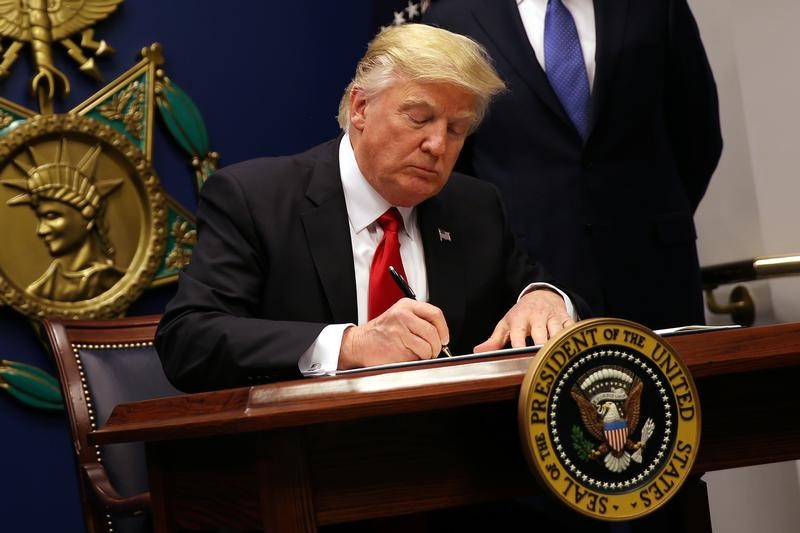WASHINGTON (Reuters) - The United States pulled out of a regional hearing held on Tuesday to discuss the possible effects on human rights from executive orders signed by U.S. President Donald Trump targeting immigrants and refugees, organizers said.
The hearing by the Inter-American Commission on Human Rights (IACHR), created by the 35-nation Organization of American States (OAS) to protect human rights in the Americas, follows concerns over the impact of three executive orders signed by Trump, including plans to build a wall on the border with Mexico.
The U.S. government has appealed a federal judge's halt on Trump's ban on refugees and travelers from six predominantly Muslim countries. Trump said the ban was needed to protect the country from Islamist militants but immigration advocates said it discriminated against Muslims.
Maria Isabel Rivero, a spokeswoman for the IACHR, said the United States advised the commission on Monday it would not attend the panel, which includes representatives from a number of regional human rights and immigration groups.
"If the member state doesn't want to be represented there is nothing we can do about it but the hearing goes ahead anyway," Rivero said.
State Department spokesman Mark Toner said government lawyers felt it would not have been appropriate to discuss the executive orders while some are under review by U.S. courts.
"We did inform the IACHR of our inability to attend these particular hearings because of ongoing litigation around some of these executive orders," Toner told a conference call with reporters.
"We did not feel we could address concerns in an open hearing," he added.
Marselha Goncalves Margerin, advocacy director at Amnesty International, said the lack of U.S. representation at the panel showed " a total disregard of its commitment to human rights."
She said while it was not unprecedented that member states that are the focus of a hearing do not attend, the panel was an opportunity for the United States to explain the executive orders.
"The U.S. has attended these hearings for the last eight years," said Goncalves Margerin. "By failing to be present at this hearing, the U.S. joins Cuba and Venezuela in turning its back on people in the Americas who seek justice for human rights abuses."
